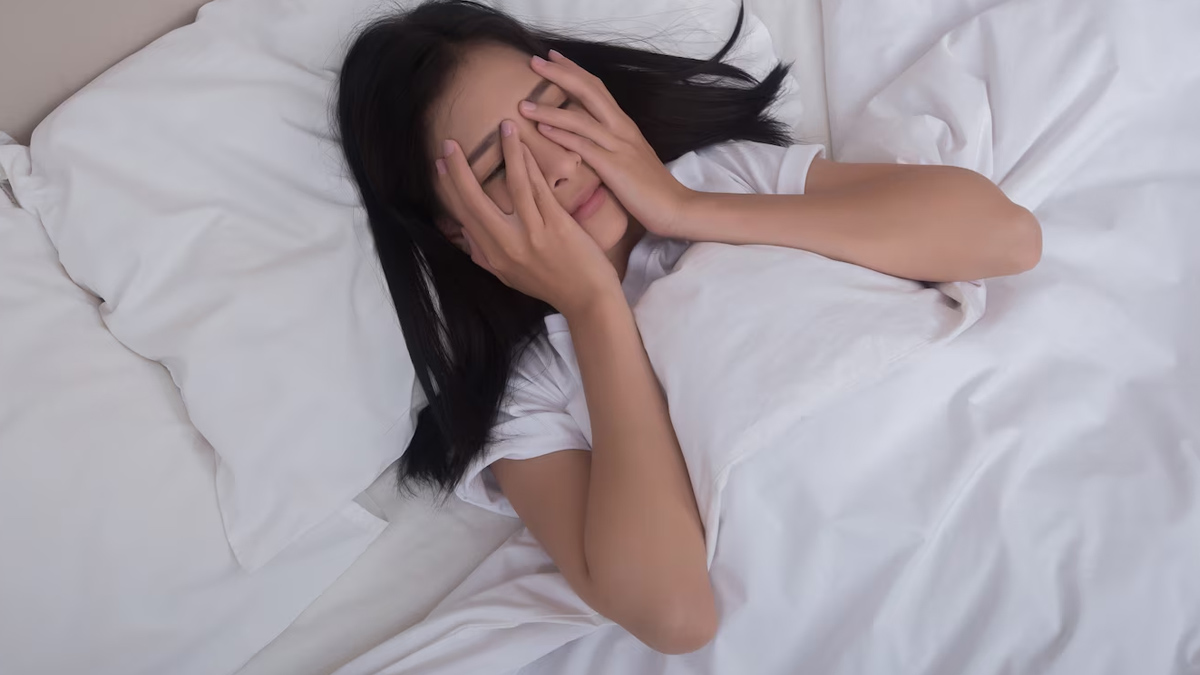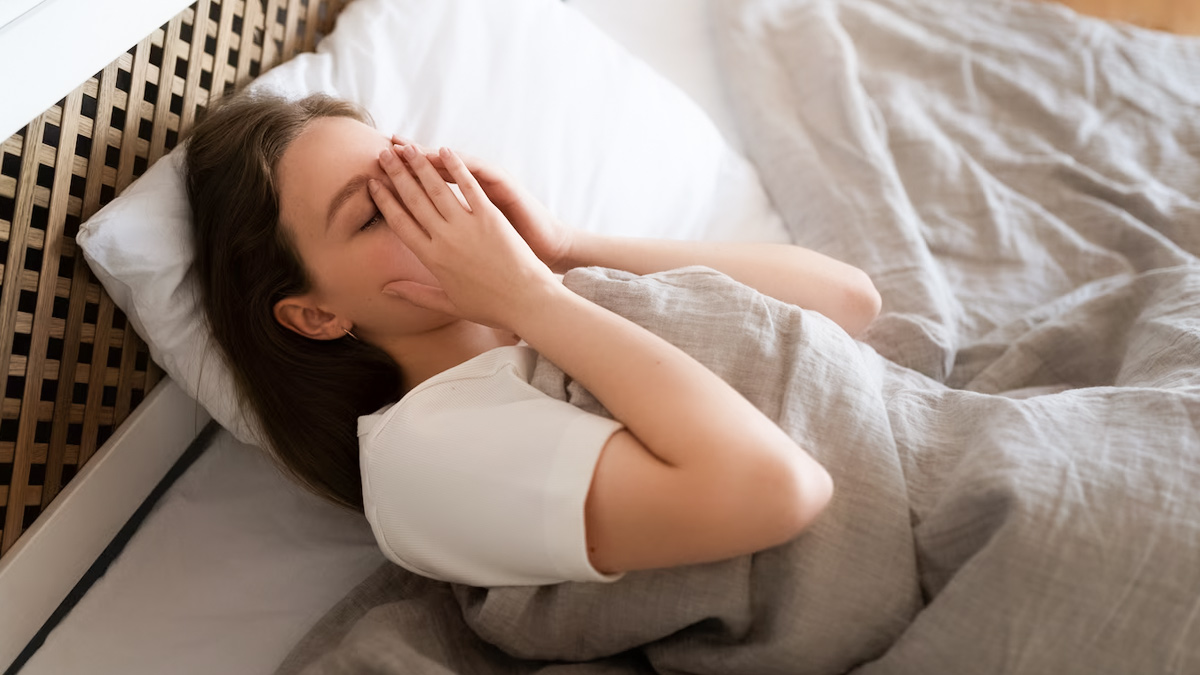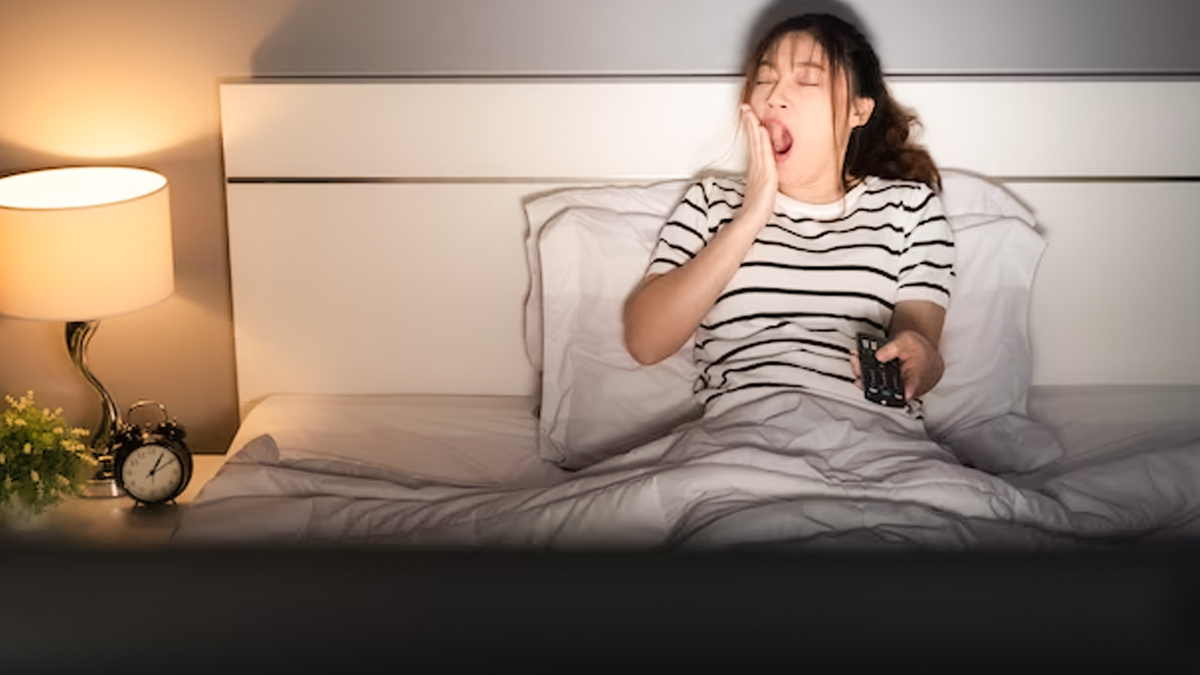
Whoever said 7–8 hours of sleep is enough was only partly right. While it is the daily recommended sleep duration for most adults, it’s not just about the quantity; the quality of sleep matters just as much. In fact, Dr Amitabh Saha, Associate Director and Clinical Administrator - Mental Health And Behavioural Sciences, Psychiatry, Max Super Speciality Hospital, Vaishali, says that good sleep isn’t just about how long you’re in bed; it’s also about what happens while you’re asleep. This is where the concept of ‘junk sleep’ comes in — sleep that may meet the recommended duration but lacks the depth and restfulness your body truly needs.
Table of Content:-
Also Read: How Sleep Position Can Help Reduce Snoring: Tips From An Expert
What Is Junk Sleep And How Does It Affect Your Body?

According to Dr Saha, not all sleep is equal. He says, "You might be in bed for 8 hours, but if your sleep is light, broken, or disturbed, it won’t do your brain or body much good. This kind of poor-quality sleep—sometimes called ‘junk sleep’—can leave you feeling foggy, low, and unmotivated the next day."
Additionally, people often find it hard to focus, feel more emotional than usual, or struggle to get through daily tasks.
The US Centers for Disease Control and Prevention (CDC) emphasises the importance of both sufficient and good quality sleep for healthy sleep. Some of the signs of poor sleep quality are:
- Trouble falling asleep.
- Repeatedly waking up during the night.
- Feeling sleepy or tired even after getting enough sleep.
But what causes junk sleep? Let's take a look at the underlying reasons.
Is It Poor Sleep, Stress Or A Vitamin Deficiency?

Dr Saha says, "Tiredness can have many causes, but the type of fatigue you feel can give you clues. Poor sleep often leads to heavy eyelids, irritability, or a sluggish feeling that doesn’t lift during the day. You may need several cups of tea or coffee to stay alert."
On the other hand, if your sleep seems fine but you still feel drained, it could be due to low iron, vitamin D, or B12 levels—especially if you're also feeling dizzy, pale, or frequently unwell.
Moreover, stress can also make you feel tired in a different way—it leaves your mind racing, your body tense, and your sleep broken. If you’re tossing and turning at night, or waking up earlier than planned, stress could be the culprit.
Also Read: Say Goodbye To Sleep Apnoea And More: How Bariatric Surgery Can Transform Your Health
How Screentime Affects Your Sleep Quality

A recent study published in the Frontiers of Psychiatry utilised a 2022 study involving over 45,000 students aged 18–28 and explored how screen use in bed affects sleep.
Researchers found that each extra hour spent on screens after going to bed was linked to a 59% higher chance of insomnia and 24 minutes less sleep. Interestingly, it didn’t matter whether the screen time was spent on social media or other activities—both were linked to poor sleep.
According to Dr Saha, screens emit blue light that tricks the brain into thinking it’s still daytime. This stops your body from producing melatonin, the hormone that helps you fall asleep.
"Even short bursts of screen time before bed can delay sleep and make it harder to fall into a deep, restful state," he says, recommending switching off devices at least an hour before bed, and instead choose something calming—like reading a book, listening to gentle music, or taking a warm shower.
Daily Habits That Cause Poor Sleep
It is important to note that certain habits can quietly disrupt your sleep, even if you're in bed on time. These include:
- Drinking caffeine too late
- Eating heavy meals at night
- Drinking alcohol to ‘relax’
- Irregular sleep schedules
- A cluttered or noisy bedroom
How To Maintain A Healthy Sleep Schedule
Some of the healthy changes to incorporate in your daily routine to support your sleep include:
- Go to bed early
- Sleep for at least 7 hours; uninterrupted
- Don’t carry mobile, TV, laptop on the bed
- Require physical exercise
- Avoid drugs and intoxicants
- Work on stress
- Approach mental health professional R/o depressive disorder
- Don’t take big meal before sleep
- Fix respiratory, urinary problems for good sleep
Conclusion
Being in bed for 7–8 hours doesn’t always mean you’re getting enough rest. If you still wake up groggy, unfocused, or low on energy, it might be a sign of poor-quality sleep - what experts call ‘junk sleep’.
However, a few mindful changes in your daily routine can go a long way in helping you feel truly rested. After all, real rest isn’t just about how long you sleep, but how well you sleep.
Also watch this video
How we keep this article up to date:
We work with experts and keep a close eye on the latest in health and wellness. Whenever there is a new research or helpful information, we update our articles with accurate and useful advice.
Current Version